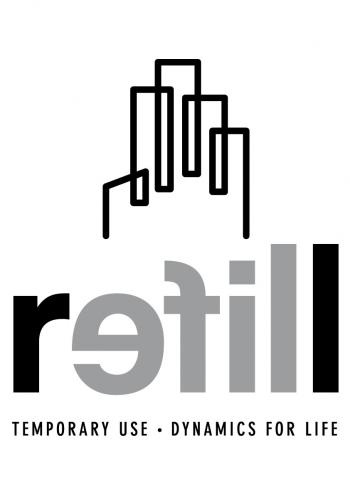REFILL

Over the past few decades, many cities have experimented with finding temporary uses for abandoned or neglected spaces and buildings. Their experiences serve as a source of inspiration for innovation and change in other cities where temporary use can act as a driver and incubator for urban development.
What is temporary use ?
Many of the initiatives at the onset of these experiments have a bottom-up structure. Some are SMEs, artists or craftsmen, organisations looking for meet- ing space or cultural initiatives. Others are residents who maintain plots of land or initiatives for urban farming, and yet others manage a community centre or are looking for new forms of mobility.
In some cities, grassroots organisations started experimenting with temporary use with little political or administrative intervention. Elsewhere, local authorities have actively looked for ways to facilitate this movement.
Freedom for urban development
“Normal” rules do not apply to temporary use, leading to an unusual freedom from the constraints of mainstream management or exploitation of spaces. What looks like a no man’s land one moment, is transformed the next into something new and exciting, a way to see the city from a new perspective. Freedom leads to inspiration, and inspiration to innovation.
Refill
REFILL stands for “reuse of vacant spaces as driving force for innovation on local level” and is an URBACT network of partnering cities: Amersfoort, Athens, Bremen, Cluj, Ghent, Helsinki, Nantes, Ostrava, Poznan and Riga. Its goal is to unite experimented cities with temporary use and developed tools accordingly, such as legislation, funds, financial tools, agencies, networks, (digital) platforms and so on.

François Jégou, Lead expert for the URBACT REFILL IAP network
Founder and head of Strategic Design Scenarios François Jégou has 20 years of experience in strategic design, participative scenario building and definition of new product-services-policy systems. SDS is involved in co-design projects at the interplay of social innovation and public innovation at local, national and European levels. François is professor of strategic design at La Cambre, Brussels and Design manager of the Laboratory of Usage and Innovative Practices at the Cité du Design in Saint-Etienne, France. He is Lead expert of URBACT, Expert for DG REGIO and founding member of the DESIS Design for Social Innovation and Sustainability network. His last publication: Social Innovation in Cities, URBACT Capitalisation process.
